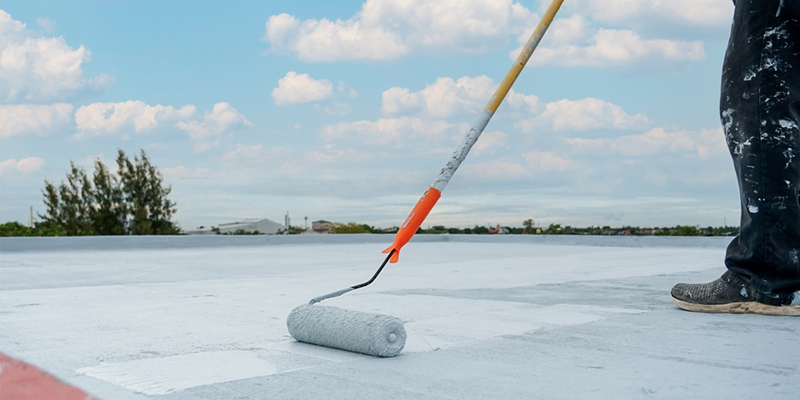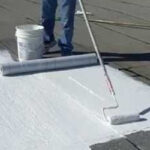
How Do Solar Panels Work? Do They Lower The Roof’s Heat?
Solar panels are becoming increasingly popular as a sustainable energy solution for homes and businesses. They harness the power of the sun to generate electricity, offering a clean and renewable alternative to traditional energy sources. In this blog, we will explore two interrelated questions: how do solar panels work, and do they lower the roof’s heat? Understanding these aspects of solar panel technology can help you make informed decisions about energy efficiency and sustainability for your property.
How Do Solar Panels Work?
Solar panels work by harnessing the energy from sunlight and converting it into electricity through photovoltaic cells. When sunlight hits the panels, the photovoltaic cells, made of semiconductor materials, create an electric field across the layers, causing electricity to flow. The electricity generated by solar panels is initially in the form of direct current (DC), which is then converted into alternating current (AC) to power homes and businesses. This conversion process is essential because most appliances and devices in homes use AC electricity. An inverter is used to convert the DC electricity into usable AC electricity, which can power appliances and devices in your home. This process allows solar panels to generate clean and sustainable electricity for your household needs.
Do Solar Panels Lower the Roof’s Heat?
Solar panels can help reduce the amount of heat that hits the roof by reflecting some energy away. They are also made of materials like aluminium frames and glass, which can further contribute to this effect. As more energy is reflected off your roof, it will absorb less heat, resulting in a lower roof and building temperature. However, solar panels work best between 15°C and 35°C and can lose efficiency in extreme heat, such as during heatwaves. For each degree above 25°C, solar panel efficiency can decrease by approximately 0.3% to 0.5%. Despite this, the overall energy-saving benefits of solar panels, including their ability to reduce roof heat and provide clean energy, make them a valuable investment for many homeowners.
Effect on Roof Temperature
Solar panels can have a noticeable effect on the temperature of the roof and the building. They work by absorbing some of the sun’s energy and reflecting the rest, which can help lower the overall temperature. However, it’s important to note that solar panels work best between 15°C and 35°C and can lose efficiency in extreme heat. The optimal temperature for solar panels is around 25°C (77°F). Higher temperatures can reduce their efficiency, impacting their ability to generate electricity efficiently. Despite this, the overall benefits of solar panels, including their ability to lower roof and building temperatures and provide clean energy, make them a valuable addition to any property.
Impact on Energy Production
Solar panels are designed to operate in various weather conditions, including rain, but their efficiency may be reduced. They can still generate power during rainy or cloudy weather, although at a lower efficiency compared to sunny days. Additionally, extreme heat, such as during heatwaves, can also reduce the efficiency of solar panels. Despite these limitations, solar panels remain a reliable source of clean and renewable energy, making them a sustainable choice for many homeowners and businesses.
Alternatives to Solar Panels to Reduce Roof Heat
Unlike solar panels, there is another more effective way to reduce roof heat, which is through the use of heat-coating paints. These innovative solutions, also known as roof cool paint, heat coating paint, or heat-proof paint, are designed to reflect a significant amount of the sun’s heat away from the roof. Your building will be able to absorb less heat if you apply these coatings to your roof. This will result in a cooler interior and possibly lower energy expenses.
HeatCure offers a range of rooftop coating solutions that are specifically designed to block a high percentage of heatwaves outside, allowing more natural light to enter and keeping your building up to 20 degrees cooler. These coatings can be a great alternative or complement to solar panels, providing an additional layer of heat protection for your roof.
Conclusion
Solar panels are an excellent way to generate clean, renewable energy while also helping to reduce the amount of heat that hits your roof. By absorbing some energy and reflecting the rest, solar panels can lower the temperature of your roof and building, potentially reducing the need for excessive air conditioning during hot weather. However, it’s essential to consider factors such as the optimal temperature range for solar panels and their potential efficiency reduction in extreme heat.
For those looking for alternative and more effective solutions to reduce roof heat, HeatCure’s rooftop coating solutions offer a promising option. These coatings, also known as roof cool paint, heat coating paint, or heat-proof paint, can further enhance your building’s heat protection, providing a cooler indoor environment and potentially lowering energy costs.
Ultimately, whether you choose solar panels, rooftop coatings, or a combination of both, taking steps to reduce roof heat can have a significant impact on energy efficiency, comfort, and sustainability. Consider exploring these options to make your building more energy-efficient and environmentally friendly.



Comment (0)